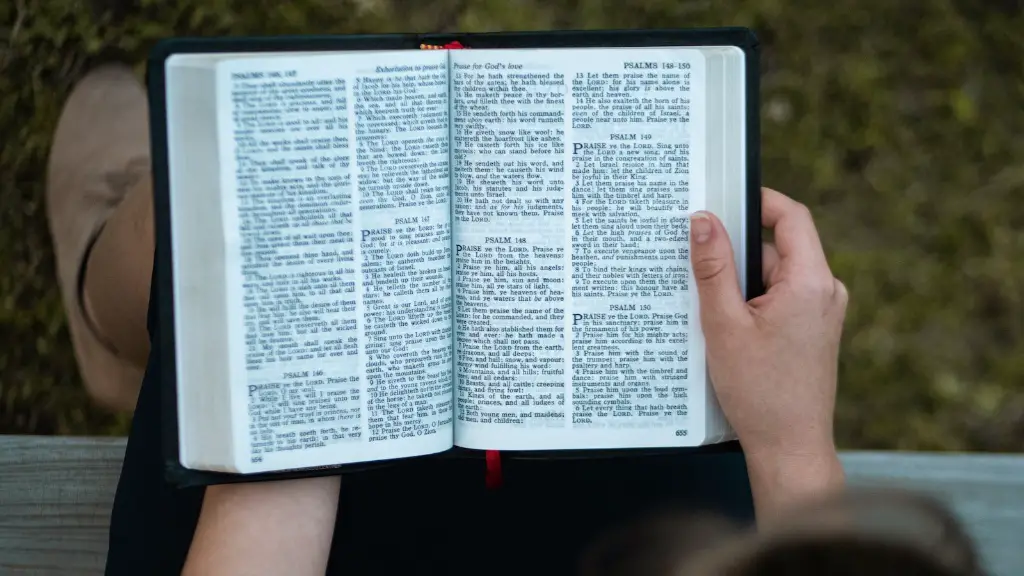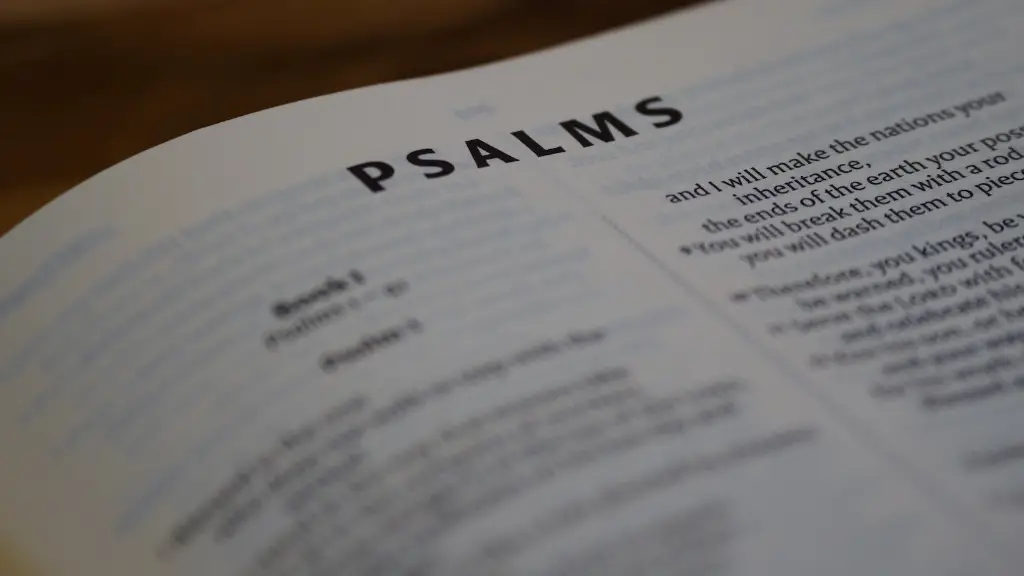The question at hand: are white people in the Bible? A simple question that can spark a large debate amongst Christians, no matter what denomination. It is important to explore the various interpretations, perspectives and answers to this question, in order to further explore how a Christian should approach their faith when it comes to something as complex as race identity.
Race is a social construction, and has its own place in the Bible. Genesis 1:26-27 says: “And God said, Let us make man in our image, after our likeness: and let them have dominion over the fish of the sea, and over the fowl of the air, and over the cattle, and over all the earth, and over every creeping thing that creepeth upon the earth. So God created man in his own image, in the image of God created he him; male and female created he them.” Despite what is often seen as a universal truth in many Christian circles, this passage is interpreted in various ways. It can be viewed as an inclusive statement that is inclusive of all people on an abstract level, or as an exclusive one that speaks only to certain groups.
One interpretation is that the passage is only inclusive of certain populations. There are those who believe that people in the Bible were of one color, i.e. white. This is seen across Christian denominations, and even non-denominational groups. While this interpretation is not necessarily the only way to read this passage, it does show that the Bible is often seen as a corpus of texts with only white people. It is important to address why this may be the case and potential implications it could have.
The issue at hand is larger than this one passage, however. While there are certainly interpretations of the passage that recognize non-white people as equally included, there also exists a larger issue of the Bible’s portrayal overall. This portrayal often paints non-white people in a negative light, while white people are characterized more positively.
It has been argued that this can be explained by the context of the ancient world. The books of the Bible were written in a specific cultural, political and religious context that did not often recognize diversity and difference. This does not mean that the Bible should be seen as promoting racial bias or oppression, but it does mean that some of its language can be seen as reflecting that context.
There are also instances of non-white people in the Bible; however, these are few and far between. The most well-known example is the Ethiopian eunuch in Acts 8. By looking at this instance and other passages, we can start to see a more inclusive picture of the Bible’s portrayal of people. This allows us to move away from the narrative of a monolithic culture and start to see the multiple voices that talk about God and the various cultures.
The Importance Of Race In Biblical Times
It is important to recognize the importance of race in Biblical times, as this can help provide context when discussing the presence of white people in the Bible. In the Bible, race is spoken about in both positive and negative contexts. For example, in the book of Genesis, the sons of Noah are described as having certain color skin, and in the book of Deuteronomy, race and ethnicity is used to explain why some other nations should not be included in the nation of Israel.
At the same time, race is also used in a positive way in the Bible. In the book of Ruth, an example of an interracial marriage is explored and seen as an example of faith and fidelity. Additionally, in the books of Esther and Daniel, ethnic identity is taken on by characters in order to survive in their respective contexts. These examples show that race and ethnicity should not be viewed as something to be shunned in the Bible, but rather something to be embraced.
White People in The Bible Today
The presence of white people in the Bible today is still highly debated, with many interpretations of the various passages. Some see white people as fully included in the Bible, while others see white people as only having a limited presence. This has led to discourse about how the Bible should be interpreted, with different scholars and theologians coming to different conclusions.
It is important to note, however, that this debate is not entirely new. It has been around for centuries, even before the emergence of post-modern interpretations of the Bible. This is because race has always been a hotly contested issue in the Christian faith and has therefore been a part of Biblical conversations since the very beginnings of Christianity.
In light of this, it is important to recognize that Christians today must take on the challenge of accepting diversity and working to create a more inclusive faith community. This is not just a moral challenge, but also a theological one. We must find a way to reconcile our interpretations of the Bible with our diverse contemporary society.
Conclusion
This is a complicated question, and one that requires further exploration. It is important to explore the various perspectives when it comes to race and identity in the Bible, in order to find a way to embrace diversity while still recognizing our faith’s roots. With an open mind and willingness to engage in honest dialogue, we can start to make strides towards understanding each other better.
Historical Implications
The implications of the presence of race in the Bible can be seen in modern day racism. There are those who use the Bible to justify their beliefs, and this can be an issue if the Bible is interpreted in a way that does not fully recognize the diversity of the people of God. This is where context becomes even more important when reading the Bible. It is important to understand the culture and context of the writers and readers in order to better understand how race is used and what impact it could have.
Additionally, it is important to look at how the presence of race in the Bible has affected religious interpretation over the centuries. From colonization, to the reclamation of faith, to the emergence of Biblical studies, there are many ways that race and identity have been used to shape how we view Christianity today. By examining the historical implications of race in the Bible, we can start to understand how it has been used to shape our beliefs and how it can continue to be used in constructive ways.
Impact Of Race In The Bible
The impact of race in the Bible is important, as it can cause us to either feel welcomed or excluded in our faith, depending on how it is interpreted. This becomes even more important in the contemporary world, where race is more discussed and there is more of an understanding of what it means to be diverse. As Christians, we must strive to be more inclusive and to embrace the full range of colors, cultures and backgrounds that make up the people of God.
By looking at the various interpretations of race in the Bible, we can start to understand how our faith shapes our views on race and how we can use the Bible to bridge our differences. This can be done by looking to Scripture for guidance on issues such as justice and reconciliation, and by being more intentional about learning from individuals of different racial, ethnic and cultural backgrounds.
Implications For Racism
The implications of race in the Bible are something that should be taken seriously. Race has long been a tool used to oppress and divide, but it can also be a tool for bringing us together. If we look to Scripture to understand how to use race to bring about a more equitable and just society, we can move beyond hatred and fear and strive for unity.
In addition to this, it is important to tackle the deeper issues surrounding racism. By looking at class, gender and economic disparities, we can start to understand how these systems of oppression work and how we can work together to dismantle them. Race should not be seen as something that separates us, but rather as something that can be used to create a more inclusive and accepting world.
Responsibility Of The Church
The responsibility of the church in discussing race should not be taken lightly. While Scripture has given us much guidance on this issue, there is still more work to be done. We must find ways to recognize and embrace diversity, as well as to use Scripture to tackle the systemic issues of racism and inequality.
The church should also be at the forefront of discussing and attempting to dismantle racism in society. This includes having open discussions about race, acknowledging its existence, and engaging in critical analysis about how to address its presence. As people of faith, we are called to spread peace and justice, and this includes working to erase any form of oppression in our world.
Moving Towards A More Equitable Future
We can move towards a more equitable future by engaging in honest conversations about race and faith. This includes discussing the various race related topics that appear in the Bible, and looking for creative ways to use them for good. It is also important to recognize the complexity of these conversations, and to be open to hearing different perspectives and interpretations.
We must also make an effort to be agents of change in our communities. This means being brave enough to have difficult conversations, challenging existing power structures, and putting in the work necessary to create more equitable and inclusive spaces. We must also continue to provide resources and education to raise awareness of the issues surrounding race and racism.
Ultimately, it is important to remember that we all have the ability to be part of the solution. We can all make a difference in tackling racism and striving for an equitable society. By engaging in these conversations in a thoughtful and intentional way, we can take steps towards a more equitable and just future for all.





